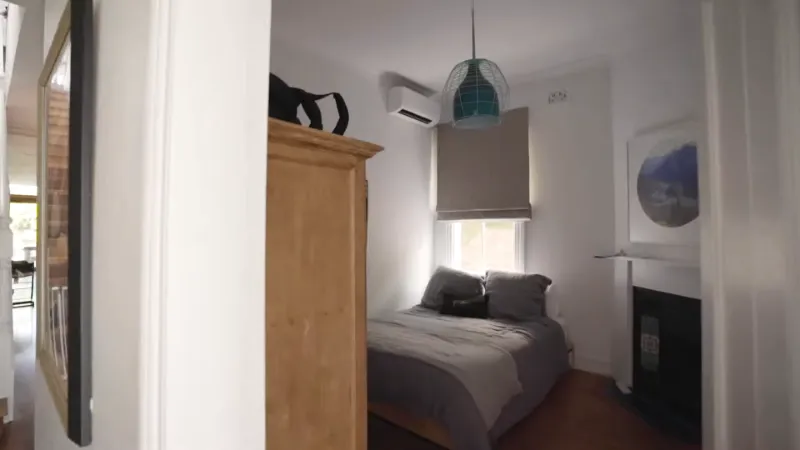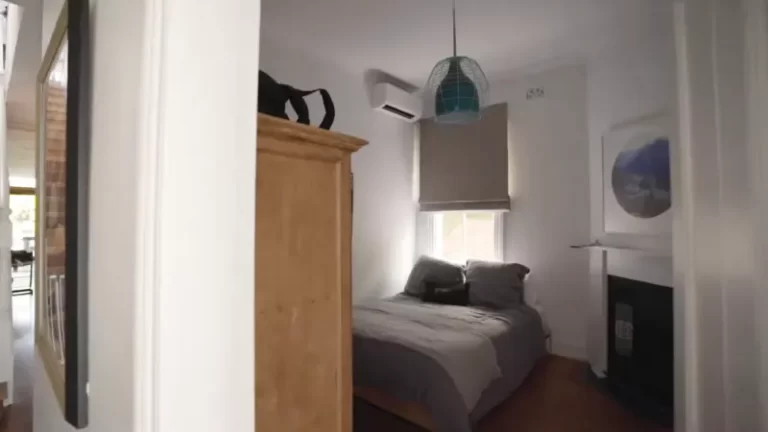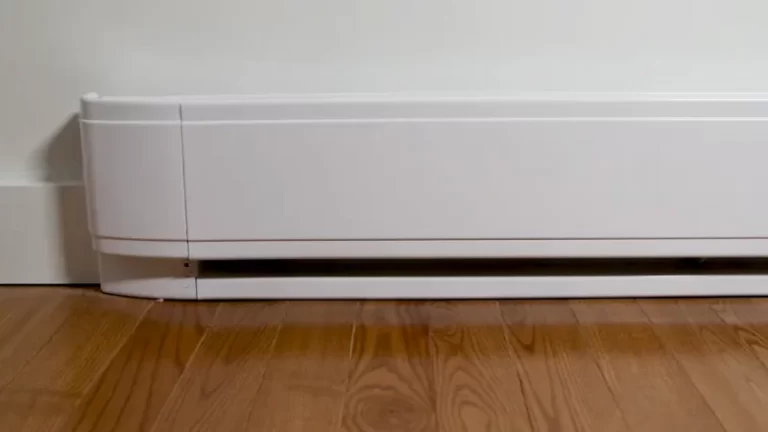Will a 7500 Watt Generator Run My Air Conditioner?

A generator is a vital piece of equipment that serves as a reliable source of backup power during emergencies, natural disasters, or when camping or traveling to remote areas. If you’re in the market for a generator, it’s essential to know the right size for your power needs, especially if you want to power a central air conditioning system.
In this blog, we’ll explore whether a 7500 watt generator can run an air conditioner and what factors you should consider to determine the right generator size for your needs.
You'll Learn About
Will a 7500 Watt Generator Run My Air Conditioner?
Based on the information from the sources, a 7500 watt generator is generally sufficient to run a central air conditioner. However, it’s important to consider the specific power requirements of your air conditioning system. The power consumption of an air conditioner varies depending on its size and other factors.
A typical central air conditioning system requires around 3,800 to 6,000 watts of continuous power to operate, and it may require an additional 8,000 watts or more of surge power during start-up. Therefore, a 7500 watt generator can meet these power requirements for a central air conditioning system, but it may not be enough to power other appliances or electronics simultaneously.
It’s important to note that if you have a larger air conditioning system or if you plan to power additional appliances or electronics, you may need to consider a more powerful generator. Consultation with an expert can help you determine the appropriate generator size for your specific needs.
Understanding Power Consumption of Air Conditioners
Before determining whether a 7500 watt generator can run an air conditioner, it’s crucial to understand the power consumption of air conditioners. Power consumption refers to the amount of electrical energy an appliance requires to operate. For air conditioners, the power consumption varies depending on various factors, such as the type and size of the unit, temperature settings, and the efficiency of the air conditioner.
The factors that affect air conditioner power consumption include the type and size of the unit, the efficiency rating, the desired temperature settings, and the frequency of use. Central air conditioning units consume more power than window units, and larger units consume more power than smaller units.
The efficiency rating, also known as the Energy Efficiency Ratio (EER), indicates how efficiently an air conditioner converts electricity into cooling output. Higher EER ratings mean more energy-efficient air conditioners, which consume less power.
The power requirements for different types and sizes of air conditioners vary significantly. For instance, a small window air conditioner with a cooling capacity of 5,000 BTU (British Thermal Units) requires about 500 to 600 watts to operate, while a large central air conditioning system with a cooling capacity of 60,000 BTU requires about 6000 to 7000 watts to operate.
It’s also essential to understand that air conditioners require more power to start up than to maintain operation. The starting power, also known as surge power, is the extra power required to start the compressor, which is the most power-hungry component of the air conditioner. Once the compressor starts, the power consumption decreases, but it still requires a continuous power supply to maintain the desired temperature.
In summary, understanding the power consumption of air conditioners is essential to determine the right size of the generator needed to run them. Factors that affect power consumption include the type and size of the unit, efficiency rating, desired temperature settings, and frequency of use. Additionally, air conditioners require more power to start up than to maintain operation, and this starting power must also be considered when selecting a generator.
How a 7500 Watt Generator Works
A 7500 watt generator is a type of generator that produces 7500 watts of power. It is typically used to provide backup power for homes or small businesses during power outages or as a portable power source for outdoor activities. In this section, we will discuss how a 7500 watt generator works and its benefits.
Definition of a 7500 Watt Generator
A 7500 watt generator is a portable power generator that uses a gasoline engine to generate electricity. It is designed to provide up to 7500 watts of power output, which can be used to power various electrical devices, tools, or appliances. It typically has a fuel tank that can hold enough gasoline to run for several hours.
Overview of How It Works
The engine of a 7500 watt generator uses gasoline to power an alternator that generates electricity. The alternator produces electrical energy by converting the mechanical energy from the engine into electrical energy. The electrical energy produced by the alternator is then sent to the outlets of the generator, where it can be used to power various devices or appliances.
The generator typically has one or more outlets where you can plug in electrical devices or appliances. These outlets provide either 120 volts or 240 volts of power, depending on the type of generator. The generator also has a circuit breaker that protects it from overloading.
To use a 7500 watt generator, you need to fill its fuel tank with gasoline and then start the engine using the recoil starter or electric starter. Once the engine is running, you can plug in the electrical devices or appliances that you want to power. It is important to be aware of the power requirements of the devices or appliances that you are using to avoid overloading the generator.
Benefits of Using a 7500 Watt Generator
A 7500 watt generator has several benefits. It can provide backup power for homes or small businesses during power outages, allowing you to keep essential appliances running, such as refrigerators, freezers, or medical devices. It can also be used as a portable power source for outdoor activities, such as camping or tailgating.
In addition, a 7500 watt generator can run high-powered devices or appliances, such as air conditioners, sump pumps, or power tools. It can also be used to power multiple devices or appliances at the same time, making it a versatile and useful tool for a variety of applications.
Overall, a 7500 watt generator is a reliable and powerful tool that can be used in a variety of situations. It is important to be aware of its capabilities and limitations to ensure that it is used safely and effectively.
Can a 7500 Watt Generator Run Your Air Conditioner?
When it comes to powering your home during an outage, a generator can be a lifesaver. However, it’s important to choose the right generator size for your needs. In this blog, we’ll discuss whether a 7500 watt generator can run your air conditioner and what factors to consider when making this decision.
The Power Consumption of a Typical Air Conditioner
Air conditioners consume a significant amount of power, especially during start-up. The exact power consumption of an air conditioner will depend on its size and type.
For instance, a typical central air conditioner requires between 3,800 to 6,000 watts of continuous power and around 8,000 watts or more of surge power. On the other hand, a small window unit may only require about 500 to 1500 watts of power.
Calculation of the Power Requirements of an Air Conditioner
To determine whether a 7500 watt generator can run your air conditioner, you need to know the exact power requirements of your unit. You can find this information in the owner’s manual or by checking the label on the air conditioner itself. For example, if your central air conditioner requires 6,000 watts of continuous power and 10,000 watts of surge power, a 7500 watt generator may not be enough to power it.
Comparison of Air Conditioner Power Requirements
A 7500 watt generator can provide a continuous output of 7,500 watts and a surge output of up to 9,000 watts or more, depending on the model. This means that it can power several household appliances simultaneously, including a small to medium-sized air conditioner. However, if your air conditioner requires more than 7500 watts of continuous power or more than 9,000 watts of surge power, you may need to consider a larger generator.
Factors That May Affect the Performance
Several factors can affect the performance of a 7500 watt generator when running an air conditioner. One of the most critical factors is the quality and condition of the generator itself.
A high-quality generator with a well-maintained engine is likely to provide a consistent power output that can meet the power demands of your air conditioner. Other factors that may affect the performance of your generator include the age and condition of your air conditioner, the size of your home, and the number of other appliances you’re running on the generator at the same time.
A 7500 watt generator can run most small to medium-sized air conditioners, but you need to check the power requirements of your air conditioner to be sure. It’s also important to consider the factors that may affect the performance of your generator and take steps to ensure that your air conditioner and other appliances are powered safely and reliably during an outage.
Choosing the Right Generator for Your Air Conditioner
Choosing the right generator for your air conditioner is crucial in ensuring that you have a reliable power source during power outages. When selecting a generator, there are several factors to consider to ensure that it can adequately power your air conditioner.
- Firstly, consider the wattage requirements of your air conditioner. Air conditioners come in various sizes, and each size has a different power requirement. You can check the wattage requirements of your air conditioner in the owner’s manual or by contacting the manufacturer.
- Secondly, consider the running and starting wattage of the generator. Running wattage refers to the amount of power that a generator can consistently produce, while starting wattage refers to the amount of power it can produce for short periods to start appliances with high power requirements, such as air conditioners.
- For example, a 7500 watt generator can produce a running wattage of 6000 watts and a starting wattage of 7500 watts. This means that it can power an air conditioner with a wattage requirement of up to 6000 watts.
It’s important to note that other factors can affect the performance of a generator, such as altitude, temperature, and fuel type. Higher altitudes and temperatures can reduce the power output of a generator, and certain fuels may produce more power than others.
When selecting the right generator size for your air conditioner, it’s best to seek expert advice from a licensed electrician or generator dealer. They can help you assess your power needs and recommend the appropriate generator size for your air conditioner and other household appliances.
In summary, when choosing a generator for your air conditioner, consider the wattage requirements of your air conditioner, the running and starting wattage of the generator, and seek expert advice to ensure you select the right generator size for your needs.
Power Requirements of Common Air Conditioner Types and Sizes
| Air Conditioner Type | Cooling Capacity (BTU/hour) | Power Consumption (Watts) |
|---|---|---|
| Window Unit | 5,000 – 12,000 | 500 – 1,500 |
| Portable Unit | 7,000 – 14,000 | 700 – 1,400 |
| Central AC | 24,000 – 60,000 | 2,400 – 6,000 |
| Ductless Mini-Split | 9,000 – 24,000 | 900 – 2,400 |
The table above shows the cooling capacity, measured in British Thermal Units per hour (BTU/hour), and power consumption of common air conditioner types and sizes. This information can be useful in calculating the power requirements of an air conditioner and determining the appropriate generator size needed to power it. The power consumption values provided are estimates and may vary depending on factors such as the brand, model, and age of the air conditioner, as well as environmental conditions such as temperature and humidity.
Frequently Asked Questions
Can a 7500 watt generator run multiple air conditioners simultaneously?
It depends on the total power consumption of the air conditioners being used. A 7500 watt generator can typically run one large air conditioner or two smaller ones. However, it may not have enough power to run multiple large air conditioners at the same time.
Is it safe to run an air conditioner with a generator?
Yes, it is safe to run an air conditioner with a generator as long as the generator is properly sized for the air conditioner and is used in a well-ventilated area. It is also important to follow all safety precautions and instructions provided by the manufacturer.
How can I reduce the power consumption of my air conditioner to make it more generator-friendly?
One way to reduce the power consumption of an air conditioner is to set the thermostat to a higher temperature, which will cause the unit to cycle on and off less frequently. Using energy-efficient settings such as “fan only” or “sleep mode” can also help reduce power consumption.
What other household appliances can I run with a 7500 watt generator while also running an air conditioner?
It depends on the power consumption of the other appliances. A 7500 watt generator can typically run a refrigerator, freezer, lights, and a few smaller appliances in addition to an air conditioner. However, larger appliances such as a washing machine or electric stove may require too much power and cannot be run simultaneously. Your pets shouldn’t drink ac water.
Can I use a portable air conditioner with a 7500 watt generator?
Yes, a portable air conditioner can be used with a 7500 watt generator as long as the generator is properly sized for the air conditioner and the unit is used in a well-ventilated area. However, portable air conditioners generally have lower cooling capacities than window or central air conditioners, so it is important to check the power consumption of the specific unit being used.
Conclusion
A 7500 watt generator can run most air conditioners, but it is crucial to consider the specific power requirements of your air conditioner to ensure that the generator can provide enough power to run it efficiently. It is also essential to consider other factors that may affect the generator’s performance, such as the altitude, temperature, and the quality of the fuel used.
By selecting the right generator size and ensuring proper maintenance and operation, you can rely on your generator to power your air conditioner and keep your home comfortable during power outages or other emergencies.




